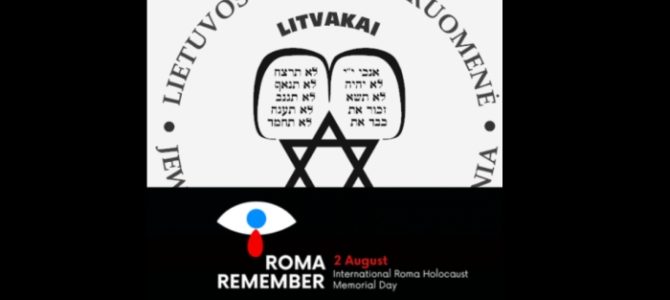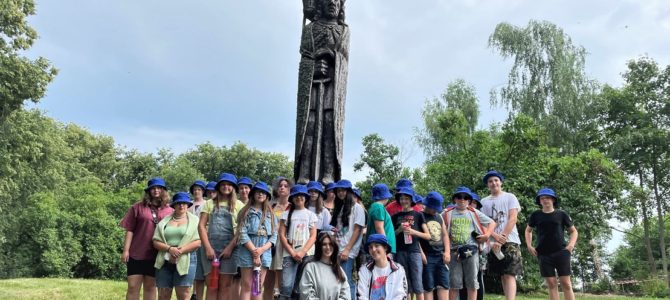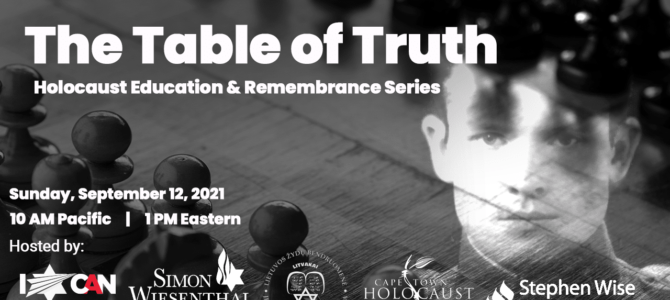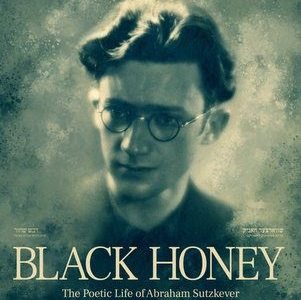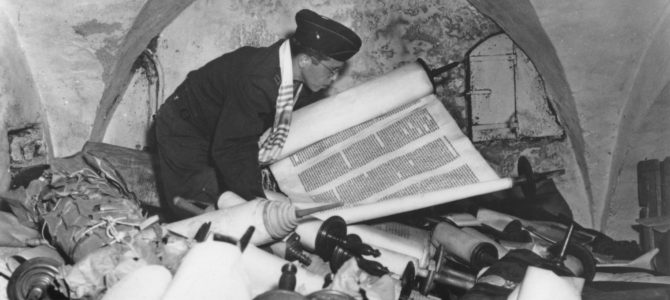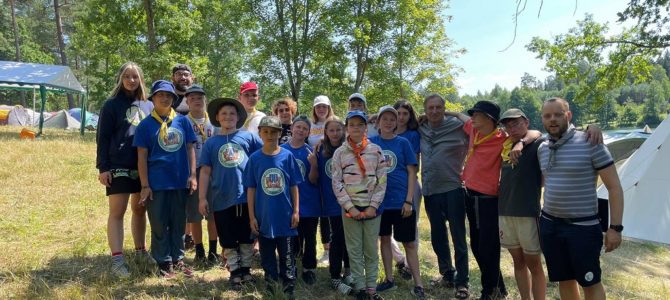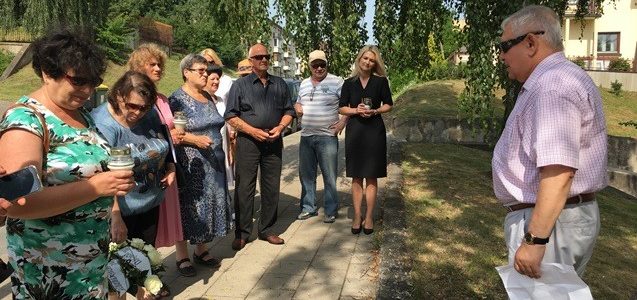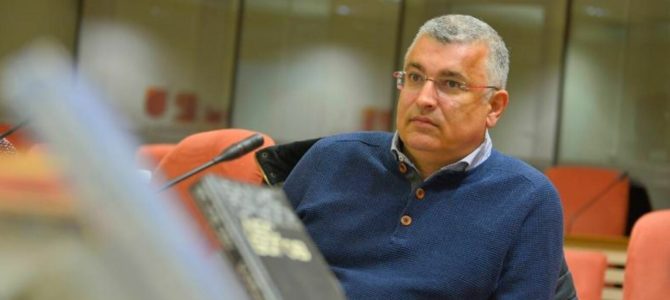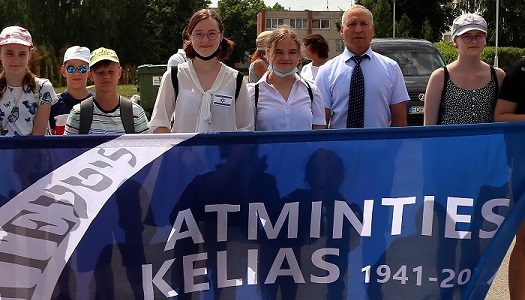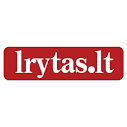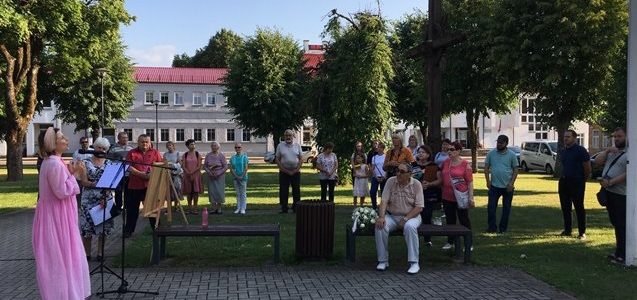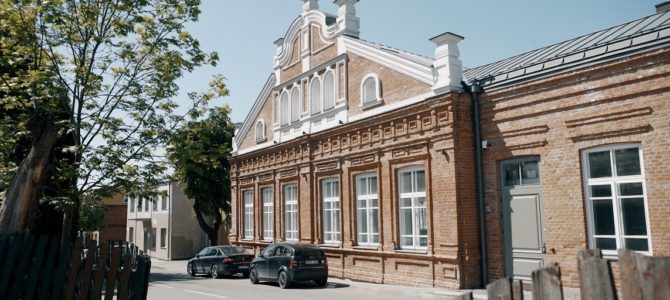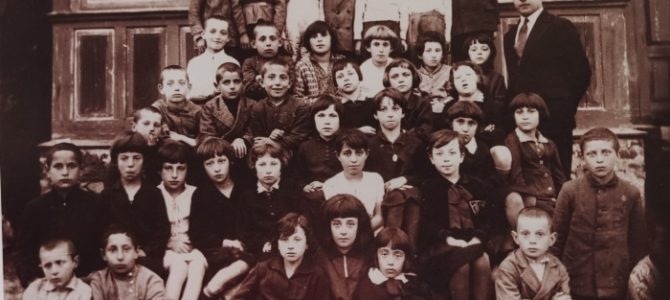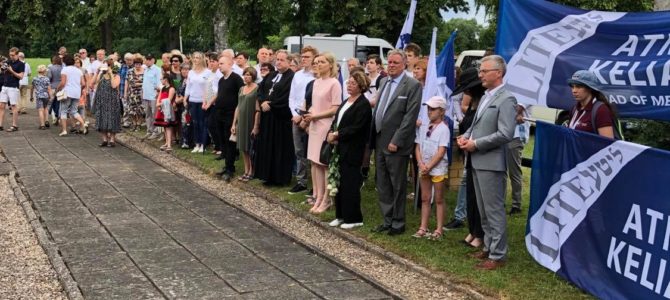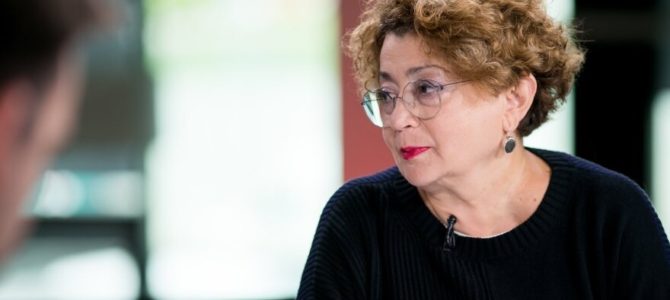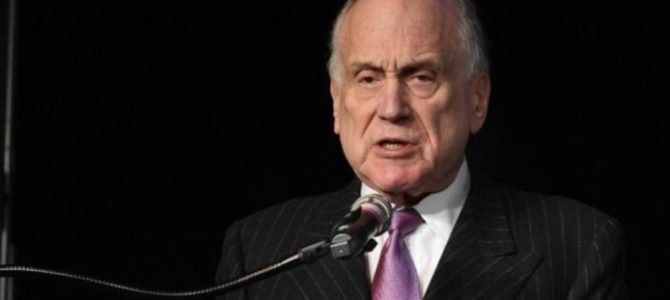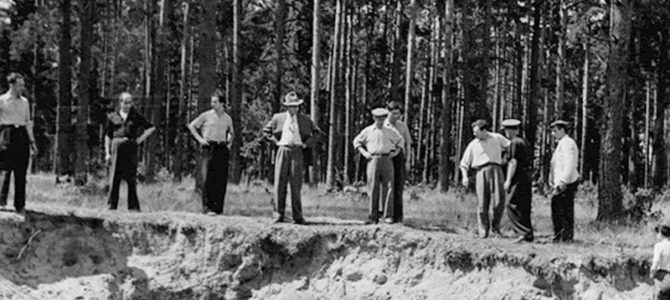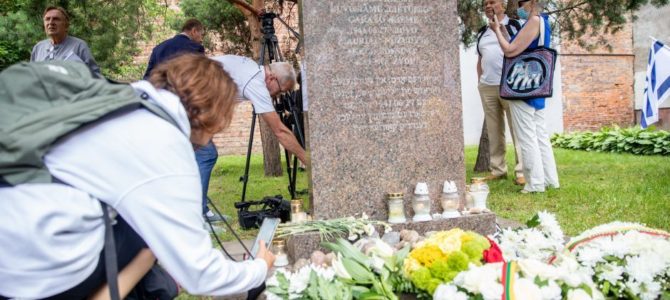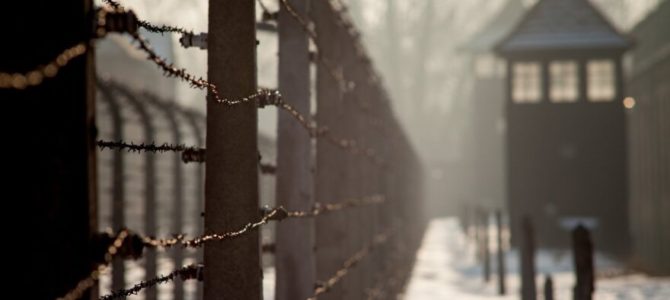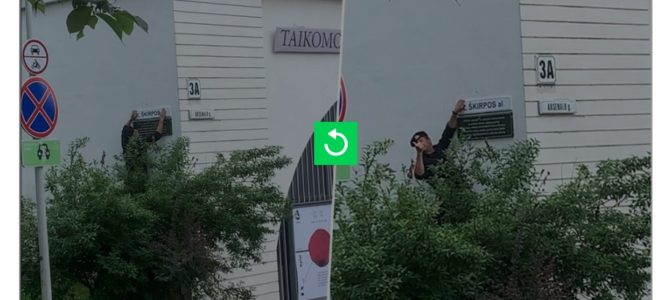August 2 is observed as the day of remembrance of the genocide committed against the Roma in Europe.
“Roma, as with Jews, the disabled, homosexuals and Communists, were considered unworthy to live by the German Nazi regime. They were persecuted, deported as forced labor and murdered. It is believed about one-half million Roma were murdered during the Holocaust. … Only in 2015 did the European Parliament adopt a resolution recognizing the genocide committed against the Roma during WWII and naming August 2 as the day of remembrance of the Roma genocide. In 2019 the Lithuanian parliament included August 2 on Lithuania’s list of observed commemorative days.”
Lithuania’s Roma Community Center can be found here.


